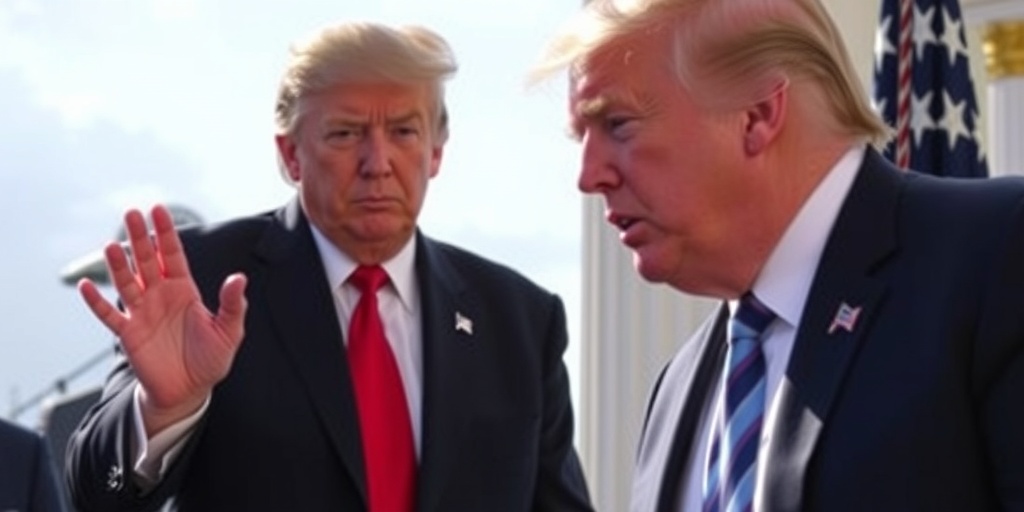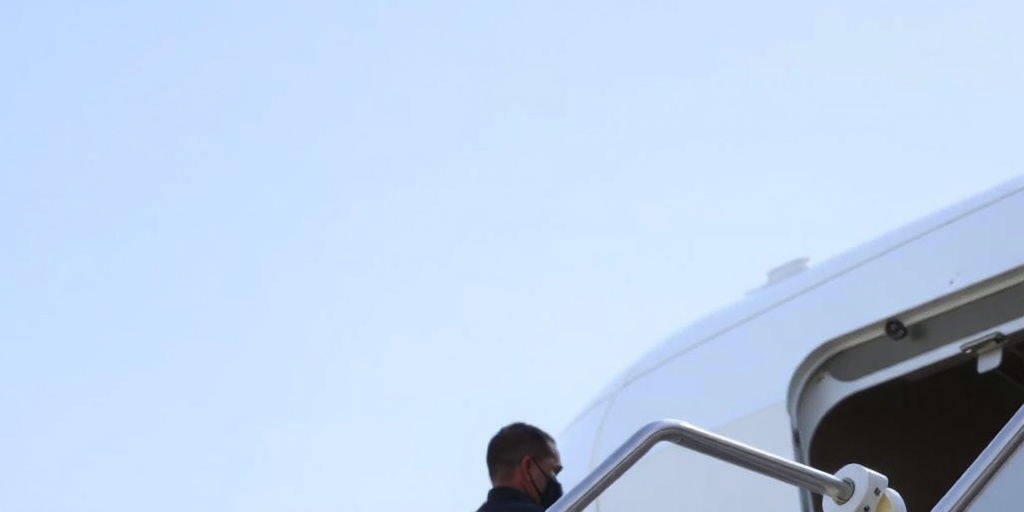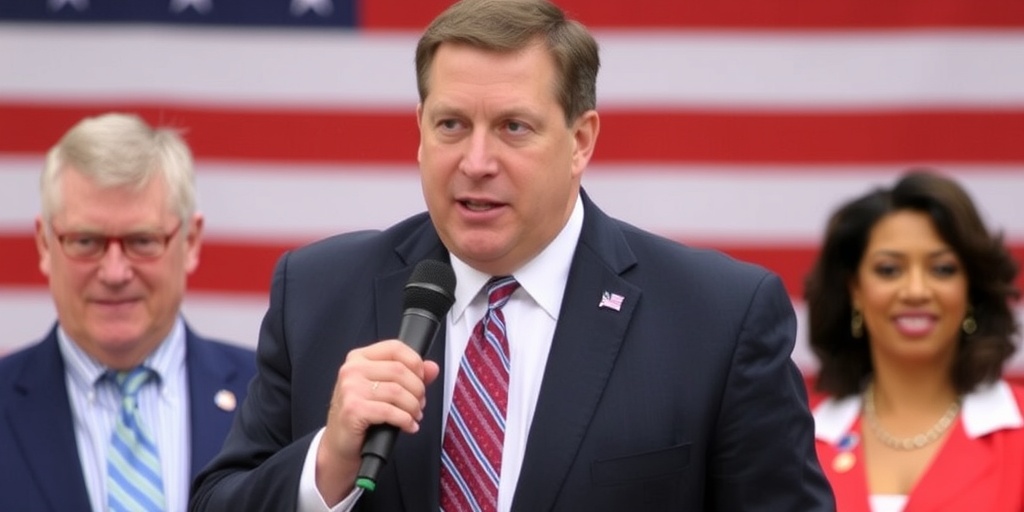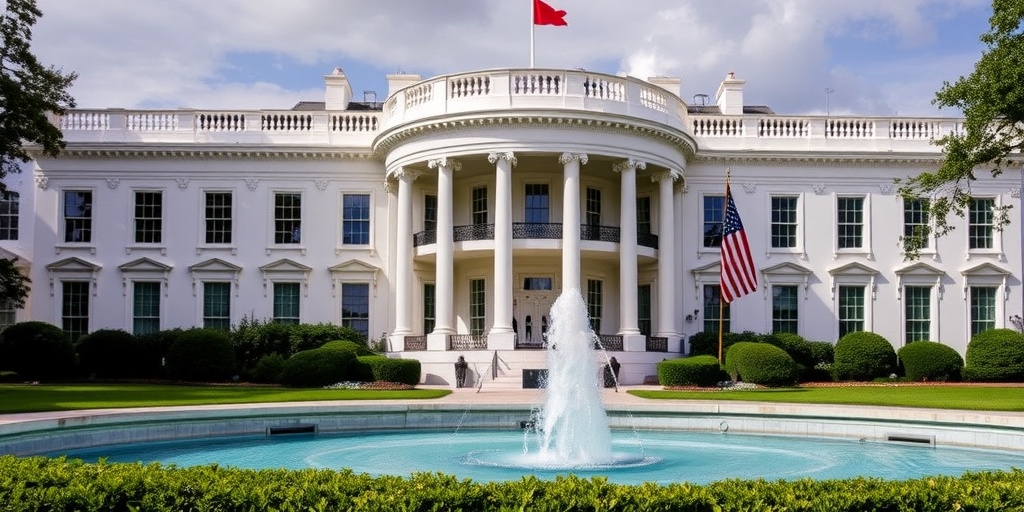Now Reading: Judge Orders Trump Administration to Release Foreign Aid by Deadline
-
01
Judge Orders Trump Administration to Release Foreign Aid by Deadline
Judge Orders Trump Administration to Release Foreign Aid by Deadline
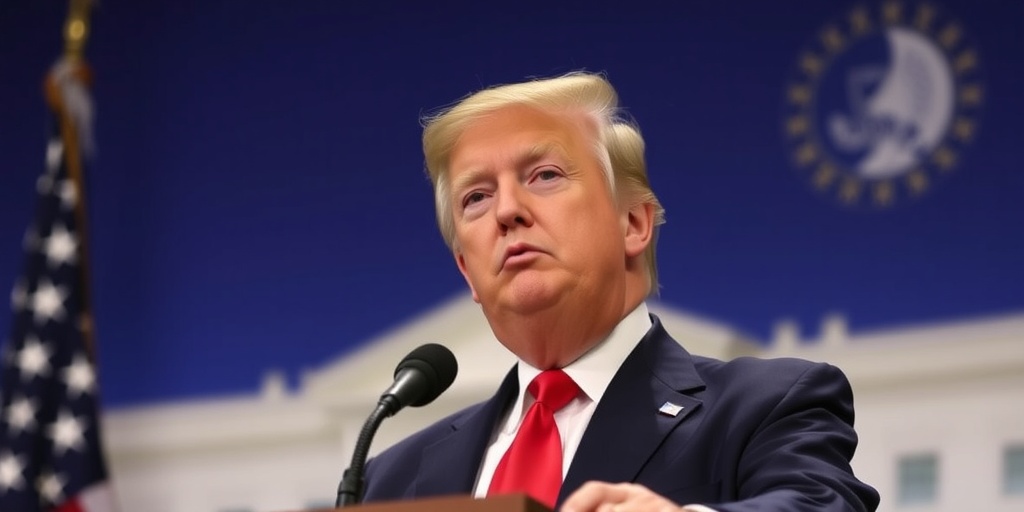
A federal judge has issued a directive requiring the Trump administration to unfreeze foreign aid funding within a strict timeframe of 48 hours, citing non-compliance with a previous court order intended to ensure the continued flow of funds to international aid organizations. The ruling was made while evaluating a troubling trend indicating that the administration had failed to adhere to judicial mandates regarding the release of aid money.
Judge Amir H. Ali, serving in the Federal District Court for the District of Columbia, ordered the U.S. State Department and the U.S. Agency for International Development (USAID) to disburse the necessary funds and pay various outstanding invoices by 11:59 p.m. Eastern time on Wednesday. This decision came after the judge had previously ruled on February 13 that the administration must maintain access to these funds while a lawsuit, brought by two health organizations, was ongoing. The lawsuit challenges President Trump’s executive order to pause most foreign aid for a period of 90 days, a move that has sparked controversy and concern over its implications for global humanitarian efforts.
During a hearing on Tuesday, evidence was presented that pointed to the administration’s potential disregard for the judge’s order. There were revelations that the administration had been employing legal workarounds intended to circumvent the obligations imposed by the court, thus delaying the necessary funding to international aid efforts.
Judge Ali expressed his frustration with Justice Department attorney Indraneel Sur, who struggled to provide clear answers regarding what actions the Trump administration had taken to disburse the frozen funds. The judge probed Sur multiple times for specifics but received vague and hesitant responses, leading to palpable tensions in the courtroom. “I’m not sure why I can’t get a straight answer from you on this,” Judge Ali admonished. Sur acknowledged his inability to provide precise information, stating, “I don’t have the ability to recite those specific facts.”
The legal representation for the suing health organizations, Lauren Bateman, claimed that individuals associated with Elon Musk continued to “veto” payments as of February 23, indicating that employees within the relevant State Department divisions were still cut off from the funding systems. Bateman further indicated that a significant number of staff members responsible for managing grants and disbursements had already faced suspension or termination, leaving insufficient personnel to execute the court’s directives effectively.
In his ruling, Judge Ali emphasized the need for the government to ensure all invoices and “letter of credit drawdown requests” pertaining to contracts for work completed prior to the February 13 order were fulfilled. He stressed that “Defendants shall take no actions to impede the prompt payments of appropriated foreign assistance funds, and shall take all necessary actions to ensure the prompt payments of appropriated foreign assistance funds.”
This decision marked the second instance in which a federal judge had granted an enforcement motion, urging the government to comply with a ruling after signs of non-compliance were evident. Earlier in the month, a different federal judge in Rhode Island had similarly compelled the Trump administration to address its delays in releasing billions of dollars allotted for federal grants.
Last week, despite deliberating on whether to hold the government in contempt for its ongoing defiance, Judge Ali opted against such a measure yet continued to demand transparency regarding the steps taken to restore funding. He instructed the government to present a status report detailing its actions by noon on Wednesday, aiming for clarity in a situation marked by confusion and delays.
The urgency of this ruling coincided with reports that the Trump administration had sought to deliberately slow down compliance with the court order. They appeared to invoke various legal authorities to justify their actions, employing a comprehensive review process of foreign aid grants as a means of implementing the intended freeze.
Amid these legal complexities, Judge Ali appeared keenly aware of the implications of the administration’s actions. He clarified that merely referencing legal authority would not suffice in terms of accountability and urged the Justice Department to grasp the significance of complying with a judicial order: “I hope you understand why this is important, as the attorney advising your client,” he concluded, emphasizing the essential obligation to uphold legal directives in the interest of justice and humanitarian aid.
Stay Informed With the Latest & Most Important News
Previous Post
Next Post
Previous Post
Next Post
-
 01New technology breakthrough has everyone talking right now
01New technology breakthrough has everyone talking right now -
 02Unbelievable life hack everyone needs to try today
02Unbelievable life hack everyone needs to try today -
 03Fascinating discovery found buried deep beneath the ocean
03Fascinating discovery found buried deep beneath the ocean -
 04Man invents genius device that solves everyday problems
04Man invents genius device that solves everyday problems -
 05Shocking discovery that changes what we know forever
05Shocking discovery that changes what we know forever -
 06Internet goes wild over celebrity’s unexpected fashion choice
06Internet goes wild over celebrity’s unexpected fashion choice -
 07Rare animal sighting stuns scientists and wildlife lovers
07Rare animal sighting stuns scientists and wildlife lovers













